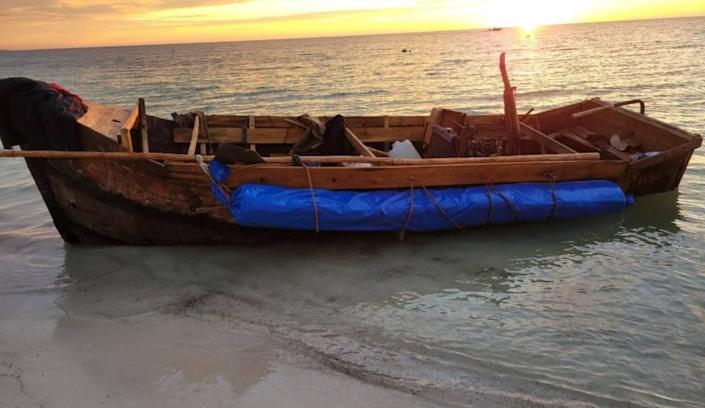The significant rise in migration from Cuba to South Florida over the past 12 months shows no sign of slowing, with the arrival of 18 people from the island in the Keys on Monday morning, according to the U.S. Border Patrol.
The group on a small, homemade wooden boat landed around 6:30 a.m. near the Middle Keys city of Marathon, according to the agency.
There were 17 men and one woman in the group, said U.S. Customs and Border Protection Division Chief Adam Hoffner. They told agents they departed from Matanzas, Cuba, although it was not immediately clear how long they were at sea.
The Border Patrol is investigating the possibility of another migrant landing on Lower Matecumbe Key that was reported to the agency on Sunday, Hoffner said.
Last week, 63 migrants from Haiti arrived in a wooden sailboat on the shore near a remote road in north Key Largo.
The people in both incidents will likely be taken back to their home countries, although U.S. Customs and Immigration Enforcement has still not disclosed where the Haitian migrants have been taken or if immigration officials have conducted “credible fear” interviews with members of the group to evaluate their possible asylum claims.
Migrants from Cuba were able to stay in the United States if they set foot on land above the high-water mark up until the beginning of 2017, when the Obama administration ended the so-called “wet-foot, dry-foot” policy. Under that 1995 revision of the Cuban Adjustment Act, those caught at sea were returned to Cuba.
Now, almost all Cuban migrants, whether stopped on the water or on land, are taken back.
In the immediate years following the end of wet-foot, dry-foot, very few people attempted the dangerous maritime journey across the Florida Straits because the legal incentive to do so was over. But that has changed.
The federal government tracks migration by fiscal year, beginning and ending Oct. 1. Last fiscal year, maritime migration attempts from Cuba to South Florida halted by the Coast Guard spiked to almost 840 people from fewer than 50 the previous fiscal year.
Less than two months into fiscal year 2022, the Coast Guard reported that its patrols have already stopped about 250 people making the voyage.
Experts on Cuba say an ever-increasing number of people are willing to risk their lives to leave because of deteriorating fiscal, health and political conditions on the island.


